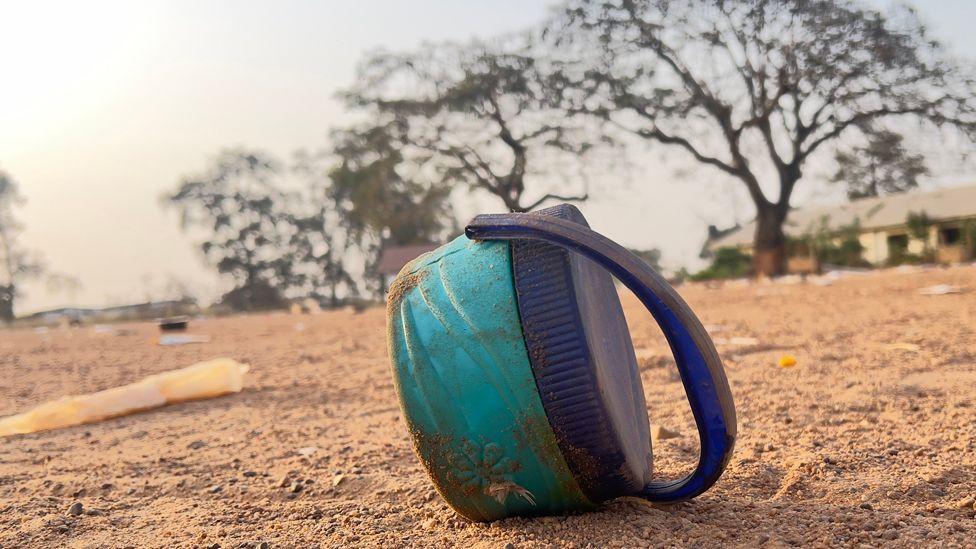The tragic events that unfolded on a high-school football field in Ibadan, Nigeria, have left a community grappling with loss and mourning. On what was meant to be a festive occasion, 35 children lost their lives in a catastrophic crush when thousands gathered for a promised distribution of free food. The Islamic High School in the Bashorun suburb, once a site for joy and celebration, now serves as a somber reminder of the lives lost, with children’s sandals, torn books, and broken desks scattered across the grounds. The event, organized by a local radio station in conjunction with a charity associated with Queen Naomi Ogunwusi, the former wife of a prominent monarch, was intended to provide much-needed relief in a country grappling with economic hardship.
As the day of the event dawned, many families traveled long distances to secure their place among the first 5,000 attendees who were promised food parcels. Some even arrived the night before, desperate to ensure their children could partake in the festivities and receive food. However, the anticipated joy quickly devolved into chaos as excited crowds overflowed beyond the intended limit. According to Lanre Kadiri, a coordinator with Nigeria’s Emergency Management Agency, the number of people present surged well past the initial expected attendance, leading to overwhelming pressure at the school gates and a rush towards the entrance.
In a matter of moments, the scene escalated into pandemonium as parents and children jostled for access, with many attempting to climb over fences to enter the compound. The reality of the situation became dire, with reports emerging of children being knocked down in the frantic scramble. Witnessing the chaos, local resident Olumide Adeniyi felt compelled to document the anguish, recording his observations as grieving parents expressed their heartbreak and desperation. One mother lamented the loss of her child, reflecting the profound devastation that has rippled through the community following the tragedy.
With the aftermath of the incident still unfolding, the event’s organizers have been taken into police custody as investigations begin. Authorities have suggested that the lack of communication regarding the event resulted in inadequate safety measures and crowd control. However, many in the community are hesitant to assign blame, believing that the intent behind the event was well-meaning and aimed at helping those in need. President Bola Tinubu has called for a thorough investigation, underscoring the government’s priority of ensuring children’s safety, emphasizing that no event should risk the lives and safety of young people.
The tragedy has ignited a broader discourse on the socioeconomic challenges faced by many Nigerians. High levels of poverty have exacerbated the desperation felt by families, prompting them to take risks for the hope of receiving food and support. Rising food and transportation costs, which have tripled within a year and a half, place immense strain on households, compelling them to seek relief in any form possible. The current economic climate, influenced by widespread inflation and government policy shifts, has fostered an environment where such large-scale gatherings may become more common, despite the inherent risks that accompany them.
In light of these circumstances, the incident serves as a glaring reminder of the urgent need for community safety protocols and support systems for vulnerable populations. While people come together in times of hardship, the safeguards necessary to protect them must also be prioritized. This heartbreaking event reveals not only the fragility of life in difficult times but also highlights the collective responsibility of society to ensure that such tragedies do not recur. As the community of Ibadan navigates the aftermath of this devastating loss, the call for reforms and a reevaluation of support mechanisms remains more pressing than ever.

